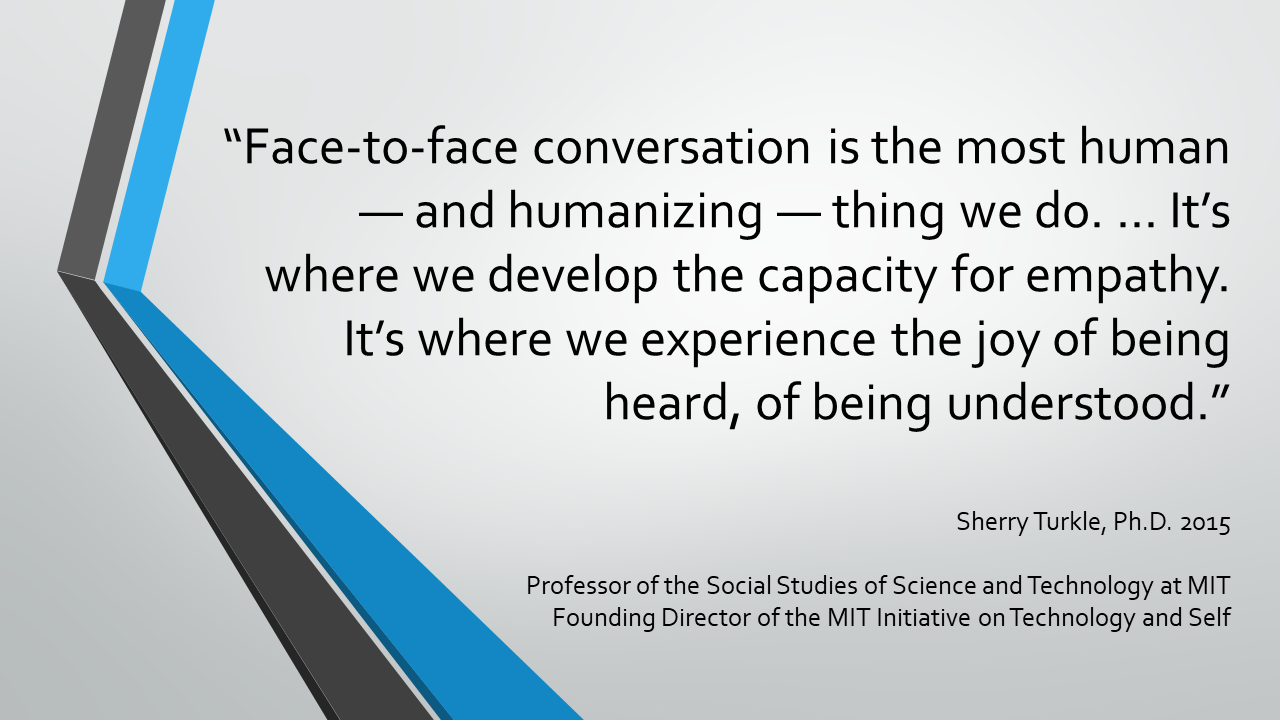Reflective Writing: What? So what? Now what?
If you were asked to explain what you believe the above quote meant, would you be able to do so? Would you feel confident in attempting to explore the essence of this message?
At this point, we’ll not put you on the spot to do that, but by the end of this course, you will most likely feel confident and even excited to explore the depths of this powerful statement.
For now, we’d like you to find your own “powerful statement” from the reading you’ve done so far. How does the sound?
Here’s your first Reflective Writing (or Critical Reflection) Assignment:
After reading sections 1.1, 1.2, 1.3, and 1.4 of Chapter 1, you’ll want to locate and spend time exploring 2 concepts or principles which intrigued you most. You’ll want to dive deep into these compelling concepts, but Reflective Writing does a little more than uncover what you learned.
Reflective writing gives you the opportunity to explore–
- “What?” (what did you learn?)
- “So what?” (what do you think about what you learned/why does it matter to you?) and
- “Now what?” (how will you use what you’ve discovered, in this class and beyond?)
Refer back to portions of the text which have drawn your attention the most, but remember you are not simply restating what the text (or videos) have said. You’re attempting to dig deeper…. to wonder…. and reflect on what you have realized or what you have “figured out” so far.
Reflective Writing (or Critical Reflection) may be a little different than what you’re used to, so take a look at this brief video (stopping and starting when necessary). Make sure you click on “cc” for closed captions if needed.
What is a Critical Reflection? Introducing the “What, So What, Now What” Model. (n.d.). Www.youtube.com. Retrieved July 8, 2022, from https://www.youtube.com/watch?time_continue=2&v=vGyjF9Ngd8Y&feature=emb_logo
If you’ve taken time with this video, you ought to have a clearer insight into your assignment here.
Basically, you’ll want to take those 2 concepts or principles you’ve chosen from Chapter 1 and
- Describe “what” happened while you were reading. What did you learn? (Be clear, be accurate, be specific.)
- Explore the “so what” aspect of your learning experience. Why do you value what you learned? How does it impact you at this point in your life? Why does “what you learned” matter to you? (Be specific, clarify.)
- Articulate “now what”. How will you use what you have learned/experienced in this class in your future (personal life or career)? Again, you want to be clear and specific here. If you’re not sure, take some guesses, go ahead… imagine, explore. Ask yourself “What if?” and “How can this be?”
- Feel free to incorporate other thoughts or perspectives about the concept (or principle) you’ve chosen. We want to see what you are thinking about (or grappling with) at this early point in the class.
Please spend time on this.
Bottom line: Reflective writing isn’t formal writing. You are NOT required to use MLA or APA citations, but you do want to develop a minimum of 20 sentences for this assignment.
Incorporate important insight from the reading and upload your writing to the Assignment Link.
(There are many approaches to this assignment. Be creative! Make it your own.)
Review the rubric below to see how the assignment will be evaluated.

